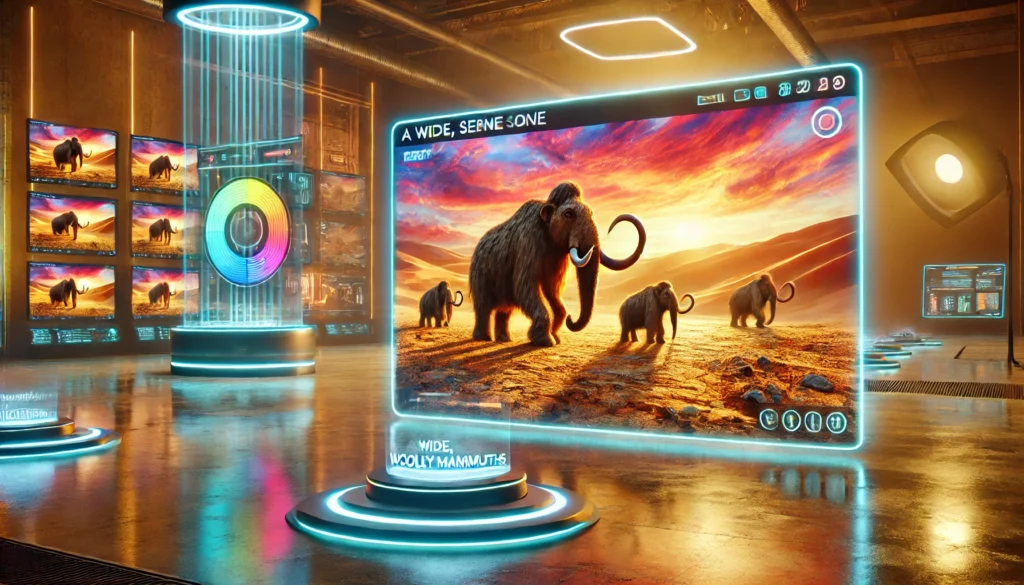OpenAI Launches Sora for everyone in the United States. This announcement marks a major step forward after the tool was initially accessible only to a select group of artists, filmmakers, and safety testers since its debut in February. However, on its launch day, OpenAI’s website experienced overwhelming traffic, temporarily halting new user registrations due to high demand.
What is Sora AI Video Generator?
Sora AI Video Generator is a text-to-video generator, a cutting-edge tool that allows users to create AI-generated video clips based on written prompts. For instance, one example shared on OpenAI’s website demonstrates the prompt “a wide, serene shot of a family of woolly mammoths in an open desert”. The generated video showcases three mammoths walking gracefully through a landscape of sand dunes.

OpenAI described Sora AI Video Generator as a tool designed to unlock creativity and push the boundaries of video storytelling. In a blog post, the company stated, “We hope this early version of Sora will enable people everywhere to explore new forms of creativity, tell their stories, and push the boundaries of what’s possible with video storytelling.”
OpenAI’s Expanding AI Portfolio
OpenAI, best known for its popular chatbot ChatGPT, has been actively branching out into other areas of generative AI. The company has developed tools for voice cloning and integrated its image-generation tool, DALL-E, into ChatGPT. Backed by Microsoft, OpenAI continues to dominate the AI market and is now valued at nearly $160 billion.
Early Reviews of Sora
Before its public release, OpenAI allowed select individuals, including renowned tech reviewer Marques Brownlee, to test Sora AI Video Generator. Brownlee described the results as “horrifying and inspiring at the same time.” While Sora excelled in creating landscapes and applying stylistic effects, it struggled with accurately rendering basic physics. Some filmmakers who previewed the tool also noted visual defects in its outputs.
Controversies and Challenges
OpenAI’s journey with Sora openAI Video Generator hasn’t been without challenges. Two weeks prior to its public launch, the tool faced temporary suspension after a group of artists exploited a backdoor, enabling unauthorized access. In a statement on the AI community platform Hugging Face, the artists criticized OpenAI for “art washing,” accusing the company of using artists to promote a tool that could potentially harm their livelihoods.
Additionally, OpenAI is still navigating compliance requirements for the UK’s Online Safety Act, the EU’s Digital Services Act, and GDPR regulations, which have delayed Sora’s availability in those regions.
Sora Ethical Concerns
Despite advancements in generative AI, tools like Sora remain prone to issues such as hallucinations (incorrect outputs), visual inaccuracies, and plagiarism. Critics have also raised alarms over the misuse of AI video technology for creating deepfakes and spreading disinformation. Examples of deepfake videos in the past, such as altered clips of Ukrainian President Volodymyr Zelenskyy and US Vice President Kamala Harris, have highlighted the risks of such technology in manipulating public opinion.
Conclusion
While Sora represents a significant leap in AI-driven creativity, its release has sparked important discussions about ethics, regulation, and the role of AI in creative industries. OpenAI continues to refine the tool, aiming to strike a balance between innovation and responsibility. As more users gain access, this openAI Video Generator could reshape video production and storytelling, but its broader implications remain a subject of intense debate.
You may also like to check OS18.2 release date